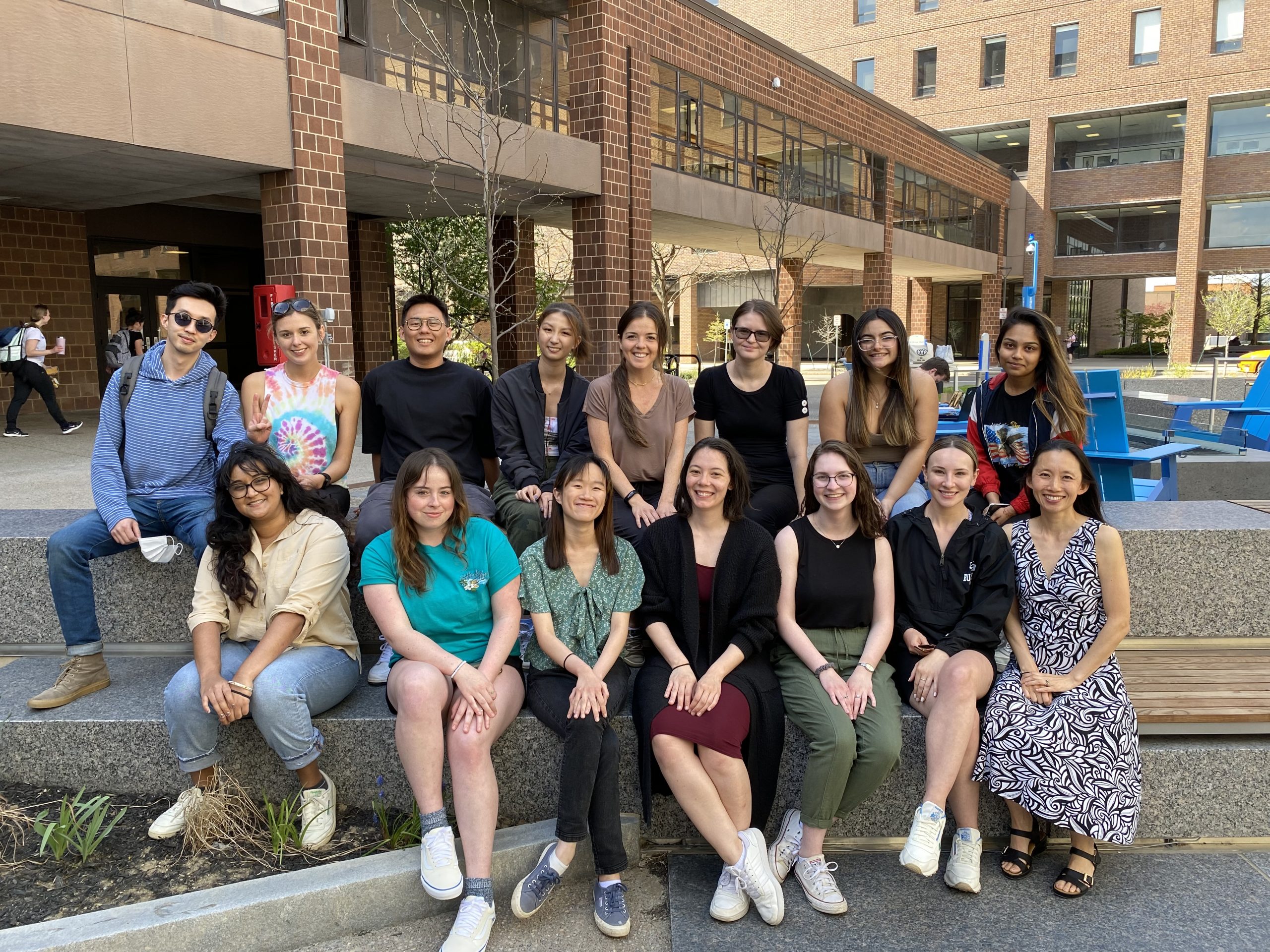Dr. Lora Park
 The Self and Motivation Lab at the University at Buffalo, directed by Dr. Lora Park, focuses broadly on questions pertaining to the self, motivation, well-being, and interpersonal processes. Using cross-sectional, experimental, and daily diary methods, we investigate (a) how the pursuit of self-esteem via contingencies of self-worth – the desire to protect, maintain, and enhance self-esteem in particular domains – undermines motivation, well-being, and relationships; (b) how people’s perceptions of cues in the environment influence their motivation and behavior; and (c) how people’s lay theories (of happiness, motivation) shape their goal pursuits, interest, and well-being. Overall, our research advances knowledge and understanding of how people’s experience of themselves affects motivation, well-being, and relationships, and identifies interventions to improve important societal outcomes, such as broadening participation of underrepresented groups across various contexts.
The Self and Motivation Lab at the University at Buffalo, directed by Dr. Lora Park, focuses broadly on questions pertaining to the self, motivation, well-being, and interpersonal processes. Using cross-sectional, experimental, and daily diary methods, we investigate (a) how the pursuit of self-esteem via contingencies of self-worth – the desire to protect, maintain, and enhance self-esteem in particular domains – undermines motivation, well-being, and relationships; (b) how people’s perceptions of cues in the environment influence their motivation and behavior; and (c) how people’s lay theories (of happiness, motivation) shape their goal pursuits, interest, and well-being. Overall, our research advances knowledge and understanding of how people’s experience of themselves affects motivation, well-being, and relationships, and identifies interventions to improve important societal outcomes, such as broadening participation of underrepresented groups across various contexts.
CORE THEMES of our research are:
(a) Contingencies of self-worth and the pursuit of self-esteem. In this line of research, we examine how threats to domains of contingent self-worth, such as experiencing failure, rejection, or financial insecurity affects people’s desire to protect, maintain, and enhance their self-esteem, with implications for motivation, well-being, and relationships. We also examine why people come to base their self-esteem in particular domains and ways to alleviate the effects of threats to self-worth and well-being.
b) Perceptions of cues in the environment. In this line of research, we examine how cues in the environment shape people’s motivation, interest, performance, and well-being. With past funding from the National Science Foundation (NSF), we examined how cues related to appearing romantically desirable affected women’s attitudes and interest in STEM. In another NSF-funded project, we investigated how subtle situational cues, such as instructors giving students positive feedback in college math courses, affected students’ self-efficacy, belonging, performance, and interest in STEM. In other work, we examined antecedents and consequences of Appearance-based Rejection Sensitivity — a personality processing system characterized by anxious concerns and expectations of being rejected based on cues regarding one’s physical appearance. Currently, we are examining how people’s overall, gut-level Safety and Threat in the Environment Perceptions — using a new scale we developed (STEP scale) — predicts people’s motivation and behavior across a range of settings.
(c) Lay beliefs. In a third line of research, we investigate how people’s lay beliefs shape their behavior and well-being. For example, we examine how lay beliefs about happiness being cumulative (Delaying Happiness beliefs) versus fleeting (Living in the Moment beliefs) shape people’s goal pursuits, affective reactions, and well-being. In another line of work, we examine how lay beliefs about motivation being fixed versus malleable affects feedback-giving.

CORE VALUES of our lab are:
To generate new knowledge and advance understanding of how aspects of the self shape motivation and behavior using a range of scientific methods.
To create a culture of collaboration and growth by supporting curiosity, connection, and openness to learning.
To contribute to broader societal issues by applying research theories and findings to help solve real-world problems.
Our lab is committed to values of equity, diversity and inclusion. We welcome students and collaborators from all backgrounds regardless of race, ethnicity, nationality, age, gender, sexual preference, socioeconomic status, religion, or physical ability. We recognize the intrinsic value of every human being and strive to promote an inclusive environment where people feel psychologically safe to share and discuss their ideas.
 The Self and Motivation Lab at the University at Buffalo, directed by Dr. Lora Park, focuses broadly on questions pertaining to the self, motivation, well-being, and interpersonal processes. Using cross-sectional, experimental, and daily diary methods, we investigate (a) how the pursuit of self-esteem via contingencies of self-worth – the desire to protect, maintain, and enhance self-esteem in particular domains – undermines motivation, well-being, and relationships; (b) how people’s perceptions of cues in the environment influence their motivation and behavior; and (c) how people’s lay theories (of happiness, motivation) shape their goal pursuits, interest, and well-being. Overall, our research advances knowledge and understanding of how people’s experience of themselves affects motivation, well-being, and relationships, and identifies interventions to improve important societal outcomes, such as broadening participation of underrepresented groups across various contexts.
The Self and Motivation Lab at the University at Buffalo, directed by Dr. Lora Park, focuses broadly on questions pertaining to the self, motivation, well-being, and interpersonal processes. Using cross-sectional, experimental, and daily diary methods, we investigate (a) how the pursuit of self-esteem via contingencies of self-worth – the desire to protect, maintain, and enhance self-esteem in particular domains – undermines motivation, well-being, and relationships; (b) how people’s perceptions of cues in the environment influence their motivation and behavior; and (c) how people’s lay theories (of happiness, motivation) shape their goal pursuits, interest, and well-being. Overall, our research advances knowledge and understanding of how people’s experience of themselves affects motivation, well-being, and relationships, and identifies interventions to improve important societal outcomes, such as broadening participation of underrepresented groups across various contexts.